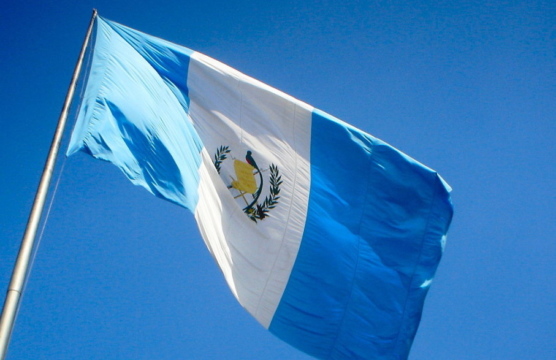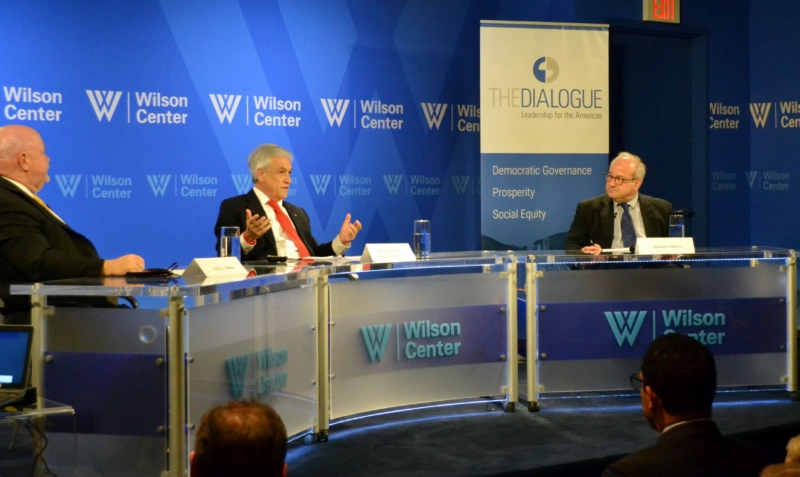
Are Countries Making Progress in Fighting Corruption?
Which countries in the region are making strides in fighting corruption, and which are falling short?
On September 22, the Inter-American Dialogue co-sponsored an event at the Wilson Center with former President of Chile and current presidential candidate Sebastián Piñera Echenique.
Piñera began by offering his vision for the future of Latin America and Chile, noting nine “mega-trends” that are emerging in the region and that will undoubtedly shape its future. The trends included:
Piñera also noted that moving forward, Latin America will need to address the challenges of income inequality, weak institutions, and issues in democratic governance. However, new sources of prosperity, greater human capital, and entrepreneurship offer the region an unprecedented opportunity to more fully integrate with the world and to improve the quality of state institutions across Latin America.
"In order to create jobs you need growth and you need flexibility." -@sebastianpinera #PiñeraInDC @LATAMProg pic.twitter.com/y9LPqSMv7p
— The Dialogue (@The_Dialogue) September 22, 2017
After laying out this vision, the candidate answered questions about a number of specific cases. In response to a question about income inequality in Chile, the candidate explained that there is no contradiction between growth and equality – that is to say, a country can focus on growing its economy as a means to ameliorate inequality by investing in education and creating jobs. Furthermore, the government can work to improve quality of life by reducing corruption, and strengthening democratic institutions and transparency. “There is no better police than sunlight,” Piñera said, referring to the role that public oversight can play in ensuring transparency in government. When asked about Venezuela, Piñera openly referred to the Venezuelan government as a dictatorship, stressing the humanitarian aspects of the crisis. On China, Piñera noted his disappointment that the United States had not moved forward with the Trans-Pacific Partnership, saying that it had given China an opportunity to increase its influence in Latin America, which will allow it to become a stronger player in the region, both in terms of economic and political influence.
Piñera then discussed his candidacy for the Chilean presidency, outlining his intention to reform education by de-regulating certain aspects of Chile’s education system. Furthermore, he discussed broad plans to reform healthcare, the pension system, and transportation and to encourage better inter-agency coordination between law enforcement organizations in order to address the issue of crime and security in Chile. Finally, Piñera stressed his commitment to encouraging entrepreneurship at all levels of Chilean society.
Which countries in the region are making strides in fighting corruption, and which are falling short?
Organized criminal groups pose an increasing risk to democracy and the rule of law in El Salvador.
Over the past weeks, public discontent with the administration of President Dilma Rousseff has continued to rise.
 Ben Raderstorf / Inter-American Dialogue
Ben Raderstorf / Inter-American Dialogue
 Video
Video